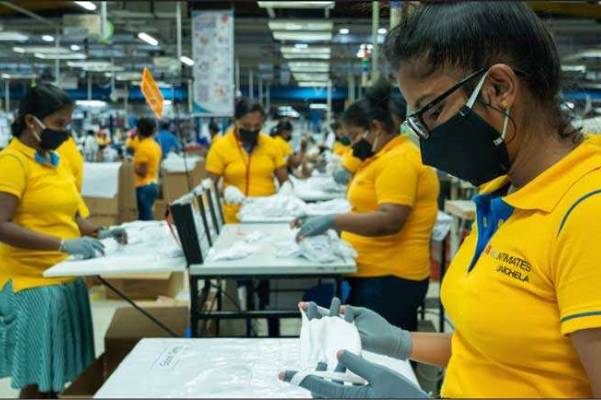Says withdrawal of GSP+ status for SL will reflect a 12% increase in export cost to EU and an “extremely difficult” trade shift
JAAF asserts it will not dictate any terms, hopeful Govt. will respond positively
The Apparel industry has said the European Union’s (EU) Generalised Scheme of Preferences Plus (GSP+) status is important for exports but insists there is no need to panic over the resolution adopted by its Parliament.
“There is no need to panic yet. There have been many instances where such resolutions have been adopted in countries and there is a procedure to be followed. We are hopeful that the Government will respond positively,” Joint Apparel Association Forum (JAAF) Secretary General Tuli Cooray told the Daily FT.
He said if the GSP+ status is withdrawn from Sri Lanka, it will reflect a 12% increase in export cost to the EU.
The EU Parliament adopted a resolution last week calling on the EU Commission to consider temporary withdrawal of Sri Lanka’s GSP+ status and the benefits that come with it, noting the Government’s persistent failure to adopt and enact human rights reform, and repeal the “draconian” Prevention of Terrorism Act (PTA). The Resolution on Sri Lanka was adopted with 628 votes in favour, 15 against and 40 abstentions.
“The value of the apparel exports to the EU is around $ 1 billion. The withdrawal of the status will be a severe loss to the overall exports. I don’t think anyone is willing to bear any additional cost increase of around 12% if we lose the EU GSP+ status at this point of time,” added Cooray.
In 2020 apparel exports declined by 21% to $ 4.4 billion after posting a 5.1% growth in 2019. Last year’s decline reflects the industry’s struggle given the COVID-19 impact globally and locally. Prior to the pandemic, the industry forecast was a 6% growth in 2020. The apparel industry has been given an export target of $ 6 billion for this year, but industry insiders feel the figure is a bit too ambitious given the challenges they grapple with post-pandemic.
In the event Sri Lanka’s GSP+ status is withdrawn, Cooray said it will result in a trade shift which will be extremely difficult.
“Anyone can say we need to be competitive and reach new markets. But it is easier said than done. GSP+ helped us to grow our exports over the years. However, in a worst-case scenario this is what we are concerned about – a trade shift,” he explained.
The textile and garment industry is the most significant and dynamic contributor to Sri Lanka’s economy, accounting for nearly 45% of exports.
However, the JAAF Secretary General said they will not try to dictate to the Government on this matter.
“We will request the Government to respond positively to ensure that the GSP+ status is not withdrawn from us.”
He also said JAAF is planning to discuss it with other export sectors that enjoy GSP+ benefits and make submissions as a joint effort.
The EU resolution takes specific issue with the use of the PTA to crackdown on minorities and dissidents and urges the Commission and the European External Action Service (EEAS) to use the preferential trade concessions as “leverage” to push for advancement on Sri Lanka’s human rights, and demand the repeal or replacement of the PTA. (CdeS)
(FT)

